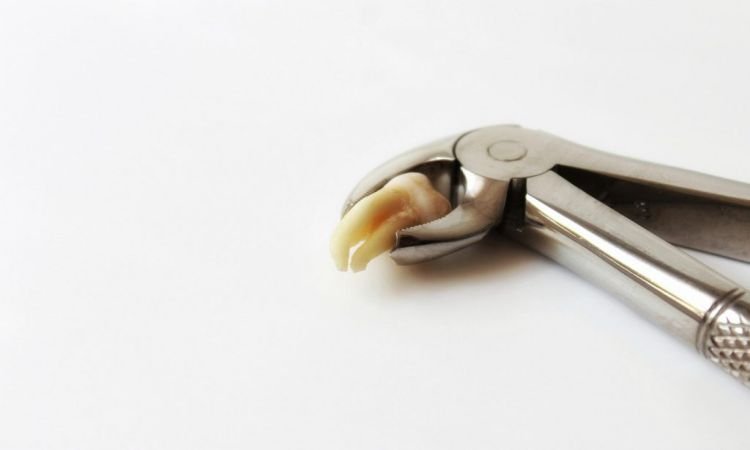
Tooth extraction is one of the most common dental procedures performed in the United States. However, it can still be a scary prospect for many dental patients.
If your dentist has decided you need a tooth extraction, you may be wondering why. Well, there are many reasons why extracting teeth may be necessary.
Read this guide to learn why removing teeth may be necessary to preserve your dental health. We’ll also cover what you can expect if you need to get this simple procedure.
Extractions in the Case of a Dental Emergency
Sometimes, tooth extraction is necessary because of a dental emergency. This can include tooth infection, damage to a tooth, or certain illnesses.
For example, infected or decaying teeth can cause a tremendous amount of pain. When the infection reaches the pulp of the teeth, extraction is usually the only possible treatment. Usually, this occurs if the patient has failed to get a root canal before the infection could spread.
Damaged teeth, such as those that are severely chipped or cracked, may need extracting. This usually only occurs if there is no salvaging of the tooth with a dental crown according to this dentist who does dental bondings and fillings in Harrisburg NC.
Certain non-dental illnesses, such as cancers or those causing compromised immune systems may result in tooth extraction. This is because their teeth will begin to decay, and therefore must be removed to prevent further damage or infection.
Other Common Reasons for Tooth Extraction
Not all tooth extractions are the result of a medical emergency or dental health problem. In fact, tooth extraction is sometimes the result of routine dental care.
Tooth extraction may also be necessary before certain procedures. These include:
Getting Braces
In some cases, patients needing braces will need to get teeth extracted before orthodontics can begin. This could be because of overcrowding in the jaw or other issues that will impact treatment.
Sometimes, a patient may need braces while they still have baby teeth. In these cases, your dentist may choose to have these baby teeth extracted.
Having Too Many Teeth
Everyone’s teeth grow differently. A condition known as hyperdontia happens when a patient has more teeth than normal.
Hyperdonita can result in issues with chewing or biting. Dentists often recommend tooth extraction in these unique cases.
Loose Teeth
Everyone has had a loose tooth before. But, if you have a loose tooth long after your baby teeth are gone, you may have a problem.
Usually, loose adult teeth are the result of gum disease. Most dentists will recommend the extraction of the tooth. This prevents the infection from spreading.
Extracting a loose tooth may help to save the entire jawbone. It is also necessary for certain gum disease treatments.
Extracting Teeth: What to Expect
If your local Lexington dentist has decided that you need a tooth extraction, you may not know what to expect. While it certainly sounds painful to have your teeth pulled, dentists take a lot of care to reduce pain levels.
Your dentist will perform the extraction under local or general anesthesia. This makes the process virtually painless.
Simple dental extractions usually take around 40 minutes. Each additional tooth that needs removal will add roughly 15 minutes.
Before the Procedure
Your dentist will start by reviewing your medical and dental history. This includes your history with anesthesia.
This helps them determine if there are any complicating factors. In some cases, they may deem the procedure too unsafe. In this case, you will not get an extraction.
The dentist will then review the impacted teeth. Sometimes a simple extraction is not enough to fix the problem.
If this is the case, the dentist will opt for full dental surgery. This is almost always done under general anesthesia. It may take longer and cost more than a simple extraction.
During the Procedure
Extractions are relatively quick and easy. If your doctor opts for local anesthesia, you may feel a slight prick from the anesthetic needle. This will numb your mouth, allowing you a pain-free extraction.
If your doctor has chosen general anesthesia, you will usually breathe in anesthetic gas. This will put you under, leaving you totally unaware of the procedure.
The doctor will use a prying-type tool to pull and extract the impacted tooth or teeth. There will be some slight bleeding.
Tooth Extraction Recovery
Recovery from tooth extraction tends to be the most painful part of the experience. Like any wound, it will hurt slightly as it heals.
Usually, it takes about 1-2 weeks to recover from a simple extraction. There will be some general unease during this period. It is usually treatable with over-the-counter medications such as ibuprofen or acetaminophen.
You may have difficulty eating or conversing during the beginning of your recovery period. Soft or liquid meals will be the best bet as you recover.
Slight bleeding is also common during recovery. It is usually manageable with sterile swabs or gauze.
Your dentist will usually provide you with specific cleaning instructions. Follow these closely to prevent infection from forming. These instructions will also help to speed along the recovery process, so you can resume your regular life.
Carefully follow any dosage or usage guidance of any medications you may use. This will prevent further damage to your body. It will also aid in a speedy recovery.
Don’t Fear the Tooth Fairy
Extracting teeth may seem like a horrifying concept. In actuality, you have very little to worry about if you need a tooth extraction. The process is generally painless and recovery is usually swift.
Talk to your dentist if you have any concerns about the procedure.
To learn more about common medical procedures, check out our Health section. When it comes to your health, we’ve got you covered.




